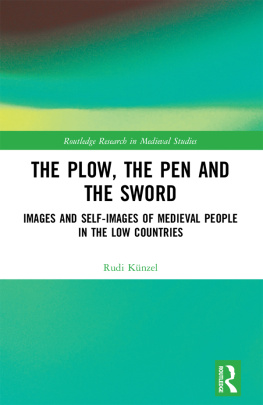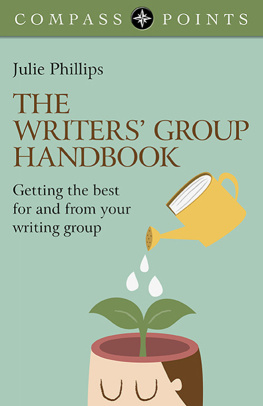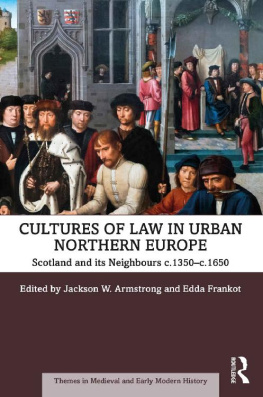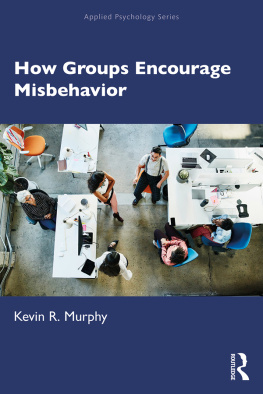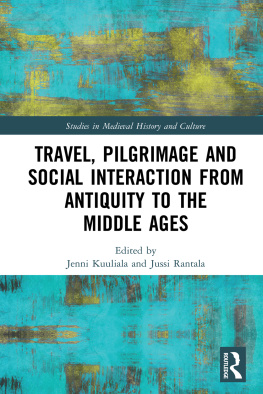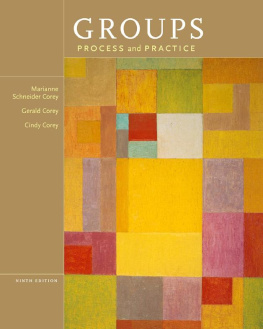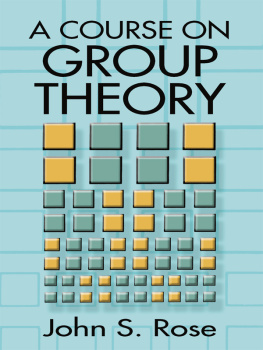The Plow, the Pen and the Sword
This book compares the cultures of the different social groups living in the Low Countries in the early Middle Ages. Clergy, nobility, peasants and townsmen greatly varied in their attitudes to labour, property, violence, and the handling and showing of emotions. Knzel explores how these social groups looked at themselves as a group, and how they viewed the other groups. Image and self-image could differ radically. The results of this research are specified and tested in four case studies on the interaction between group cultures, focussing respectively on the influence of oral and written traditions on a literary work, rituals as a means of conflict management in weakly centralized societies, stories as an expression of an urban group mentality and beliefs on death and the afterlife.
Rudi Knzel previously taught in the Department of History at the University of Amsterdam.
Routledge Research in Medieval Studies
For a full list of titles in this series, please visit www.routledge.com
7Forensic Medicine and Death Investigation in Medieval England
Sara M. Butler
8Wonder and Skepticism in the Middle Ages
Keagan Brewer
9Medieval Hostageship c.700c.1500
Hostage, Captive, Prisoner of War, Guarantee, Peacemaker
Edited by Matthew Bennett and Katherine Weikert
10New Studies in Medieval and Renaissance Poland and Prussia
The Impact of Gdansk
Edited by Beata Moejko
11The Colonies of Genoa in the Black Sea Region
Evolution and Transformation
Evgeny Khvalkov
12The Plow, the Pen and the Sword
Images and Self-Images of Medieval People in the Low Countries
Rudi Knzel
Previous titles to appear in Routledge Research in Medieval Studies include:
The Generation of Identity in Late Medieval Hagiography
Speaking the Saint
Gail Ashton
Performing Virginity and Testing Chastity in the Middle Ages
Kathleen Coyne Kelly
Women Pilgrims in Late Medieval England
Susan S. Morrison
The Plow, the Pen and the Sword
Images and Self-Images of Medieval People in the Low Countries
Rudi Knzel
Translated by Claire Weeda

First published 2018
by Routledge
2 Park Square, Milton Park, Abingdon, Oxon OX14 4RN
and by Routledge
711 Third Avenue, New York, NY 10017
Routledge is an imprint of the Taylor & Francis Group, an informa business
2018 Rudi Knzel
The right of Rudi Knzel to be identified as author of this work has been asserted in accordance with sections 77 and 78 of the Copyright, Designs and Patents Act 1988.
All rights reserved. No part of this book may be reprinted or reproduced or utilised in any form or by any electronic, mechanical, or other means, now known or hereafter invented, including photocopying and recording, or in any information storage or retrieval system, without permission in writing from the publishers.
Trademark notice: Product or corporate names may be trademarks or registered trademarks, and are used only for identification and explanation without intent to infringe.
British Library Cataloguing-in-Publication Data
A catalogue record for this book is available from the British Library
Library of Congress Cataloging-in-Publication Data
Names: Knzel, R. E. (Rudi E.), author.
Title: The plow, the pen and the sword : images and self-images of medieval people in the Low Countries / by Rudi Knzel.
Description: New York : Routledge, 2018. | Series: Routledge research in medieval studies ; 12 | Includes bibliographical references and index.
Identifiers: LCCN 2017028238 (print) | LCCN 2017029194 (ebook) | ISBN 9781315600895 (ebook) | ISBN 9781472442109 (hardback : alkaline paper)
Subjects: LCSH: Benelux countriesSocial conditions. | Benelux countriesSocial conditionsCase studies. | Social groupsBenelux countriesHistoryTo 1500. | Self-perceptionSocial aspectsBenelux countriesHistoryTo 1500. | Group identityBenelux countriesHistoryTo 1500. | CommunicationSocial aspectsBenelux countriesHistoryTo 1500. | RitualSocial aspectsBenelux countriesHistoryTo 1500. | Sociology, UrbanBenelux countriesHistoryTo 1500. | DeathBenelux countriesReligious aspectsHistoryTo 1500. | Benelux countriesReligious life and customs.
Classification: LCC HN493 (ebook) | LCC HN493 .K86 2018 (print) | DDC 306.09492dc23
LC record available at https://lccn.loc.gov/2017028238
ISBN: 978-1-472-44210-9 (hbk)
ISBN: 978-1-315-60089-5 (ebk)
Typeset in Sabon
by Apex CoVantage, LLC
This book was published with the support of the Dutch Foundation for Literature.
Contents
Part I
Group cultures
Part II
Exemplary studies
Historical studies written in Dutch are rarely read outside the Netherlands and Belgium. As a result, in studies written in other languages, even on subjects related to the Low Countries, literature in Dutch is usually not taken into account, although there are exceptions worth mentioning. The same goes for studies in Dutch based on sources from the Low Countries which contribute to discussions of international relevance. Such, indeed, was also the fate of my book Beelden en zelfbeelden van middeleeuwse mensen, published in 1997. For that reason, a few years ago, I decided to prepare a thoroughly revised and actualized edition in English for international readers. In this updated version, I have tried to incorporate as much new research as possible that has been done during the last two decades. Of course, I was only able to do this work thanks to the help and cooperation I received from many sides.
It was largely due to Boudewijn Bakker that this edition of my book in English has materialized. I am indebted to him for his consistent advice and enthusiasm in the course of preparing the publication.
I am extremely grateful to Claire Weeda for her highly knowledgeable and elegant translation. She found ingenious solutions where Dutch terms and expressions appeared to have no equivalent in English, and more than that, she gave expert comments and provided important references to recent literature.
I am also grateful to Tom Gray, who at Ashgate accepted my book for publication, and to Max Novick, Jennifer Morrow and Kevin Kelsey on the editorial and production staff, who at Routledge/Taylor & Francis carefully and patiently prepared the publication.
I thank Boom Uitgevers, the successors of Uitgeverij SUN who published the Dutch edition of this book, for their permission to use the original text. I have warm memories of the SUN people, Mayke van Dieten, Sjef van de Wiel and the late Henk Hoeks. Henk Hoeks was a diligent and gifted editor, an intellectually and politically outstanding figure, and a dear friend.
I thank Leuven University Press for permission to reuse the text of .
The publication would not have been possible without the support of the Dutch Foundation for Literature (Nederlands Letterenfonds), which decided to subsidize the translation. I am very grateful for this and I thank in particular Maarten Valken, who actively promoted this project from the beginning, and Mireille Berman, who took care of its completion.
I express my gratitude to Sheila Gogol for allowing me to use her earlier translation of my article Oral and written traditions in the

